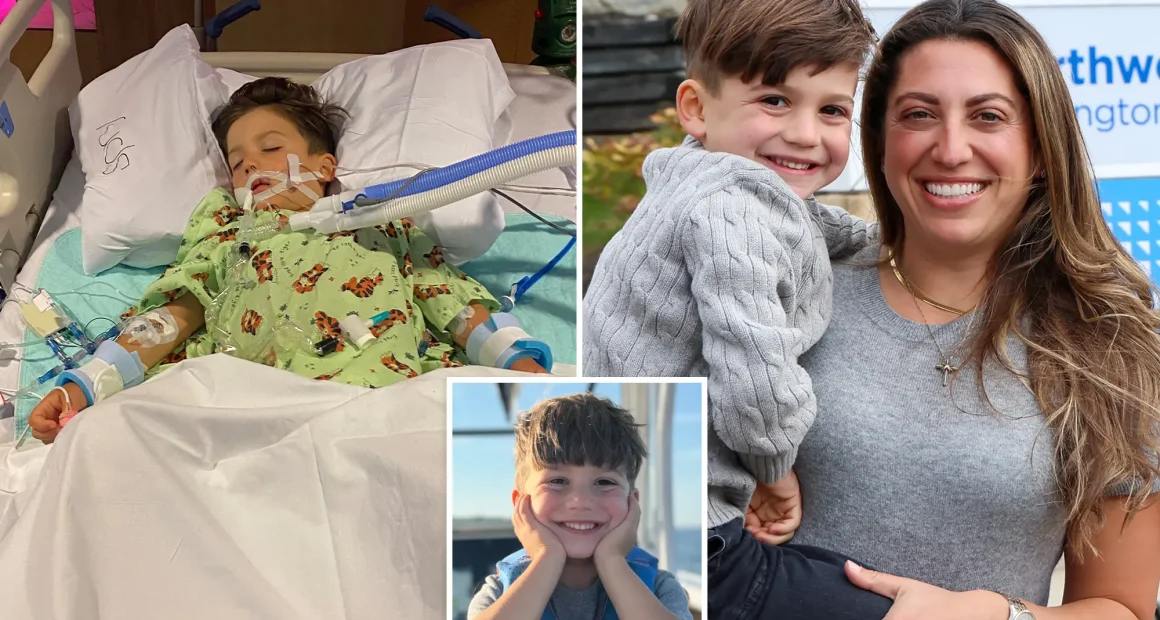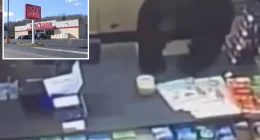A terrified Long Island mother’s quick-thinking — though heart-wrenching — decision saved her toddler son’s life this summer and ultimately uncovered the extraordinarily rare condition he suffers from.
“Imagine breathing through a milkshake straw, then a regular straw, and finally a coffee stirrer,” said Maria Carlin, 36, recalling her 4-year-old son Jack’s terrifying ordeal in late July.
“We reached a point where I thought, ‘It can’t get any higher-pitched… I know what comes next.’ And then his breathing just stopped.”
Maria Carlin and her son Jack stand outside Huntington Hospital — where a dedicated team of doctors and nurses saved the 4-year-old’s life in July after he abruptly lost the ability to breathe.
Carlin, a nurse at North Shore University Hospital, had rushed her previously undiagnosed son into the car after he spent the night crying in agony without “a single symptom of anything.”
Halfway through the 10-minute drive, Jack suddenly stopped breathing — forcing Carlin into an unthinkable choice: pull over to start CPR or race straight to the hospital.
She chose to keep driving, knowing CPR alone wouldn’t be enough and that Jack needed rapid intubation and other emergency interventions only the ER could provide.
“I heard him slump over. I went to look back, and God said, ‘Maria, don’t look back. You made your decision. You’re not going to be able to handle seeing him right now,’” she recalled, her voice breaking.
“Knowing you have a child in the back seat who isn’t breathing and needs CPR — and not doing it — I wouldn’t wish that on my worst enemy.”
Carlin made the critical choice to continue driving Jack to the hospital rather than stopping on the side of the road to perform CPR.
She laid on her horn as she pulled up to the ER entrance, where a team of doctors and nurses immediately rushed to Jack — now in cardiac arrest and without a heartbeat.
“I just saw this lifeless kid who had no pulse, who looked blue,” said emergency-room physician Dr. Jennifer Gibb, who sprinted to help after hearing Carlin “screaming.”
“I didn’t know she was a nurse at the time,” Gibb added. “I heard her saying, ‘Come on, Jack,’ and that’s my son’s name. It sends chills through your spine when you’re helping this little child who could be your own,” she said, referring to her own 11-year-old.
After nearly 10 minutes of resuscitation, Jack’s pulse finally returned.
“I can’t even explain what that feeling is like when you know that your child’s heart is beating again,” Carlin said.

















